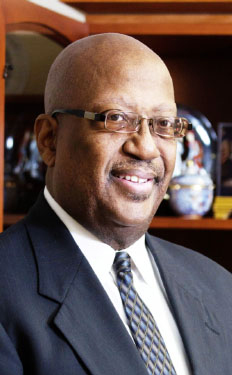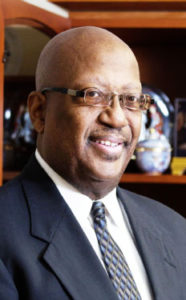
And, by the way, she had a voice that kept her in the conversation with the greatest R & B divas of all time. You couldn’t talk about Queen Aretha, Patti, Chaka, Whitney, Mavis, or Mariah without injecting the inimitable Ms. Knight into the mix.
Seeing her just a couple of years ago at the Heritage Festival of the Indiana Black Expo Summer Celebration in Indianapolis was confirmation that not only is she aging with regal grace, but her incomparable singing style remains in a class by itself.
All those factors made writing this column challenging for me. Part of me said, “Leave it alone. Let others fight this battle.” Then that other side insisted, “Stay true to the cause – no matter what the casualties.”
I know full well that half of those who read this will back me up while the other half are ready to argue all night long. The popularity of the outcome doesn’t matter to me – it never has and never will.
On principle I submit that Gladys Knight is wrong in her decision to sing the national anthem at the Super Bowl.
Some defending her argue, “Black players for both teams will be on the field” and “Gladys has clearly paid her dues and has earned the right” and “What will it prove, if she refused to sing” or “She is doing what she gets paid to do and has a right to a livelihood.”
I won’t waste time in rebuttal. Instead, here is why I think she should pass; and that is, NOT singing at that game will constitute strength in numbers.
Now don’t get it twisted, there was never a point of the civil rights movement, before or after, that all Americans of African heritage were on the same page. We are not today and have never been a monolithic community.

As Reverend Jesse Jackson Sr. recalled, “While some came from coast to coast for the March in Washington in 1963, there were Negroes on U Street – within walking distance of the Lincoln Memorial – who wouldn’t cross the street to get involved in the demonstration and said they would be glad when “the man’ ran them out of town.”
Sojourner Truth’s famous quote put it another way, that the fabled Underground Railroad saved a thousand slaves but she could have rescued a thousand more had they only known that they were slaves.
Gladys needed to say no because she is bigger than the average Black person. She is an icon. A living legend. Her rejection would have resounded. Conversely, the inclusion of such a giant of the industry cancels rejections of a handful of lesser-known artists.
It’s not just about Colin Kaepernick and the way in which the National Football League has blackballed him and others for exercising their constitutional right of nonviolent protest. It is about how the NFL as an institution is oppressive to people of color – particularly its own players, coaches and management.
There are enough negative NFL facts and anecdotes to write a book. Many have. And in the wake of the kneeling during the national anthem controversy, team owners followed the lead of their friend 45 – threatening to fire those who dared challenge the system.
It’s ugly. Unpleasant. Repressive and disrespectful. There is no simple solution. Who knows what, if anything, would cause them to have a change of heart? The Washington franchise rejects the pleas of indigenous Americans to change their Redskins team name. And take a look at all the Black coaches fired over the past season. As of press time, not one of those positions was filled with another African American.
Gladys said it is “unfortunate that our national anthem has been dragged into this debate when the distinctive sense of the anthem and fight for justice should stand alone. I will give the anthem back its voice, to stand for that historic choice of words, the way it unites us when we hear it and to free it from the same prejudices and struggles I have fought long and hard all of my life.”
We will be no freer after she sings the anthem than before she performs. No changes.
The Hall-of-Famer said, “I pray that the anthem brings us together in a way never before witnessed and that we can move forward and untangle these truths which mean so much to all of us.” Beautifully spoken. As unrealistic as the hope a fairy will change American attitudes and end all prejudice with a wave of the magic wand.
Gladys Knight’s decision is wrong and her hoped outcome of singing the anthem is naïve – in spite of her 74 years of wisdom. But I still love her as much as ever – and always will.
This article originally appeared in the Chicago Crusader.


Be the first to comment